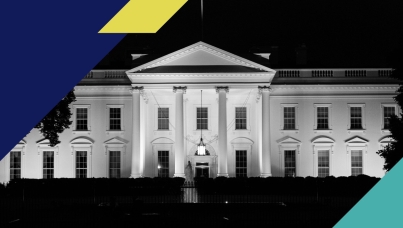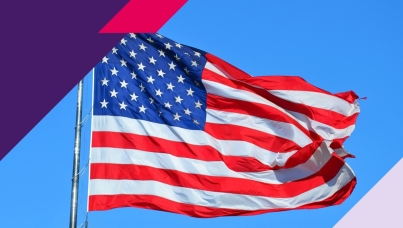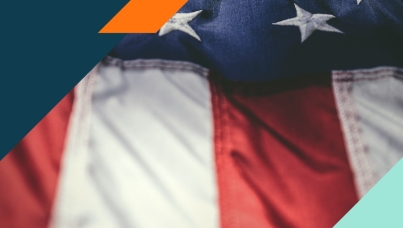

Where Americans stand on AI
It’s hard to believe it’s been just over two years since OpenAI first released ChatGPT. Since then, billions have been poured into the artificial intelligence industry with the race to develop increasingly advanced AI models only heating up since then – headlined recently by a new AI models released by Chinese company DeepSeek that rivals America’s best.
But still, there is a lot of uncertainty in the future of AI. On one hand, some experts are unsure if the current level of AI progress will continue. On the other hand, breakthroughs in the reasoning capabilities of advanced AI models have led other experts to believe that the real AI revolution is just around the corner.
With that, public opinion around AI is also highly subject to change. Below are five charts on where Americans stand on AI and where public opinion on AI stands to change.
- The hype is still here. Though the most optimistic (and pessimistic) predictions of how AI could impact the world haven’t yet materialized, interest and usage of AI hasn’t faded. Unlike technologies like the metaverse, interest in AI has shown to be sustained. AI tools are here to stay.
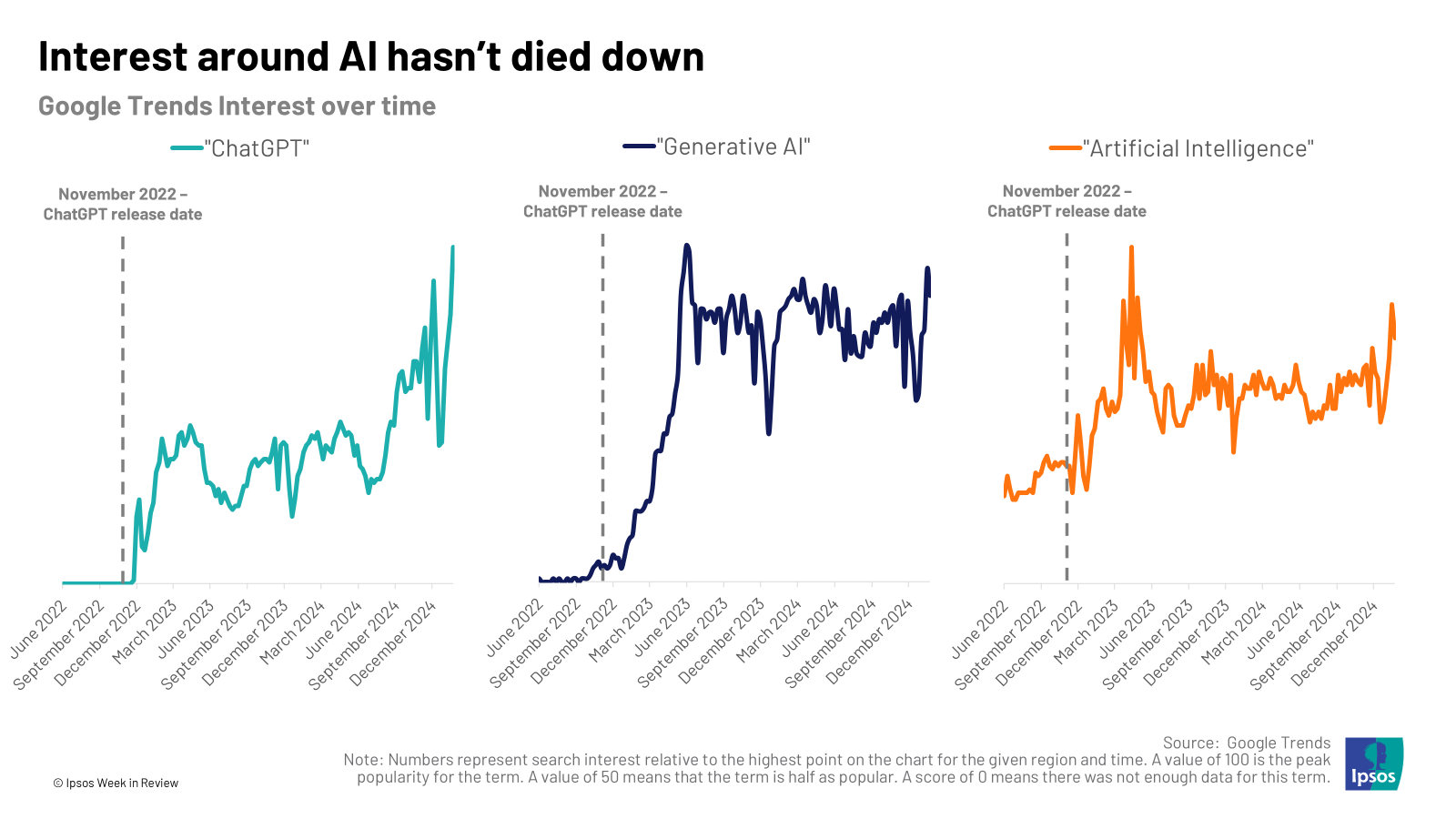
- More anxious than excited. Implementing AI features may please shareholders, but it’s not a surefire way to excite consumers. More Americans report that products and services using AI makes them feel anxious rather than excited.
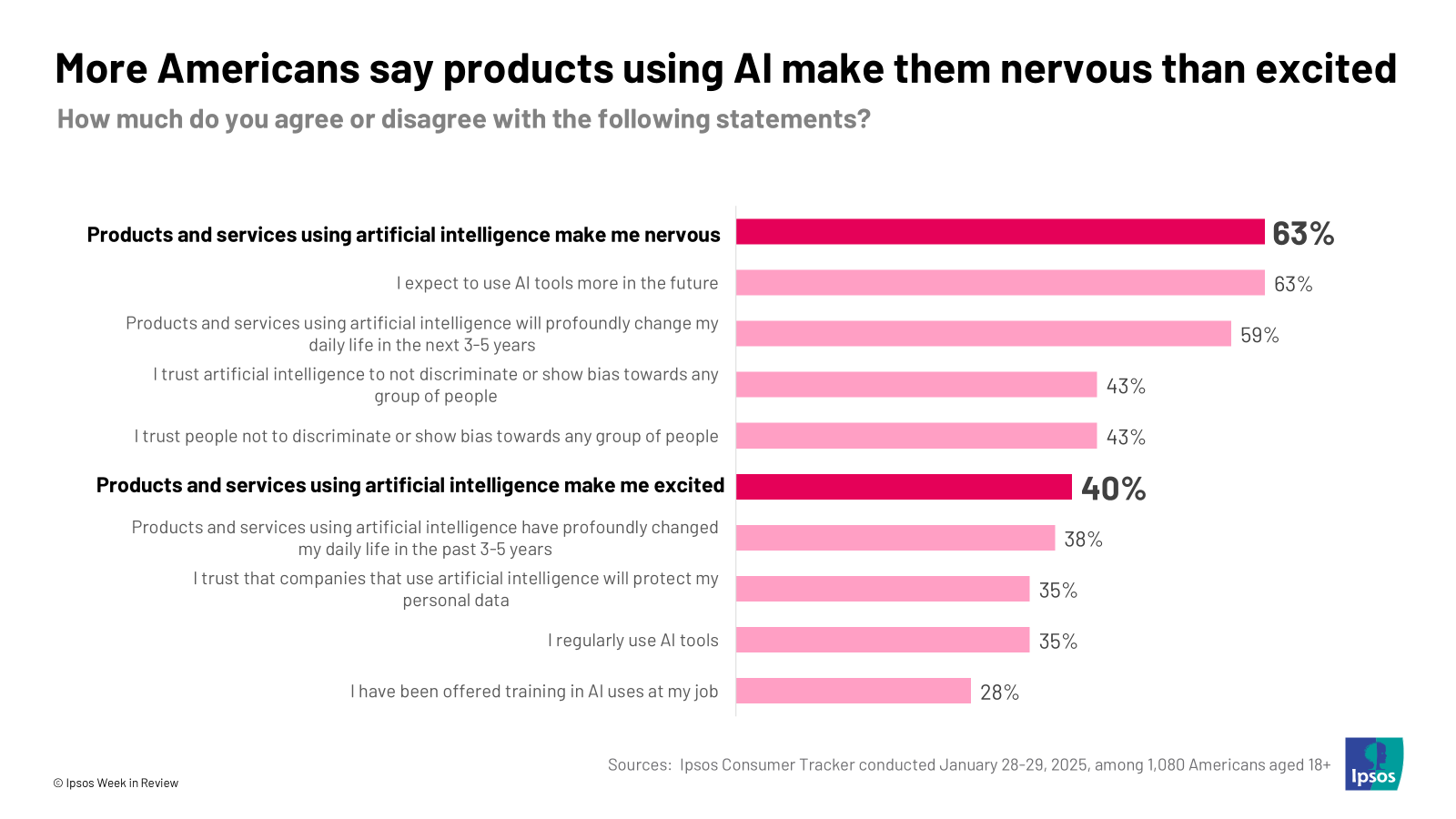
- Generational divide? However, not everyone is feeling the same level of AI anxiety. Younger Americans are more excited, less nervous, and more open to using AI compared to their older counterparts.
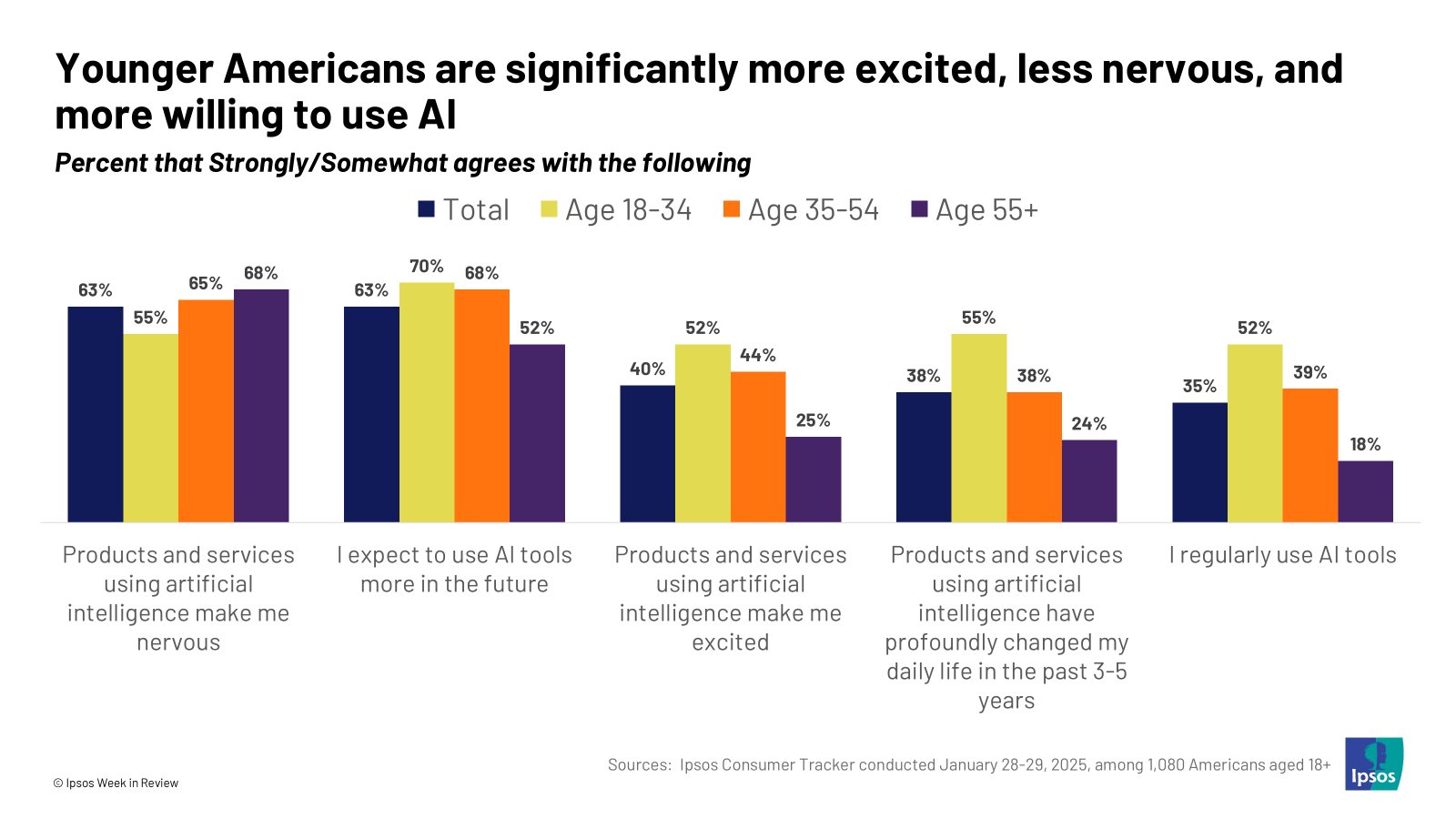
- Not a partisan flashpoint – yet. There are some slight partisan differences in attitudes toward AI regulation, but not at the same level of polarization seen on issues like immigration or political extremism. But let history be a lesson – over time, views of social media companies became polarized along party lines. If AI makes a bigger impact on Americans’ daily lives, be wary of AI becoming an issue that gets fractured across party lines.
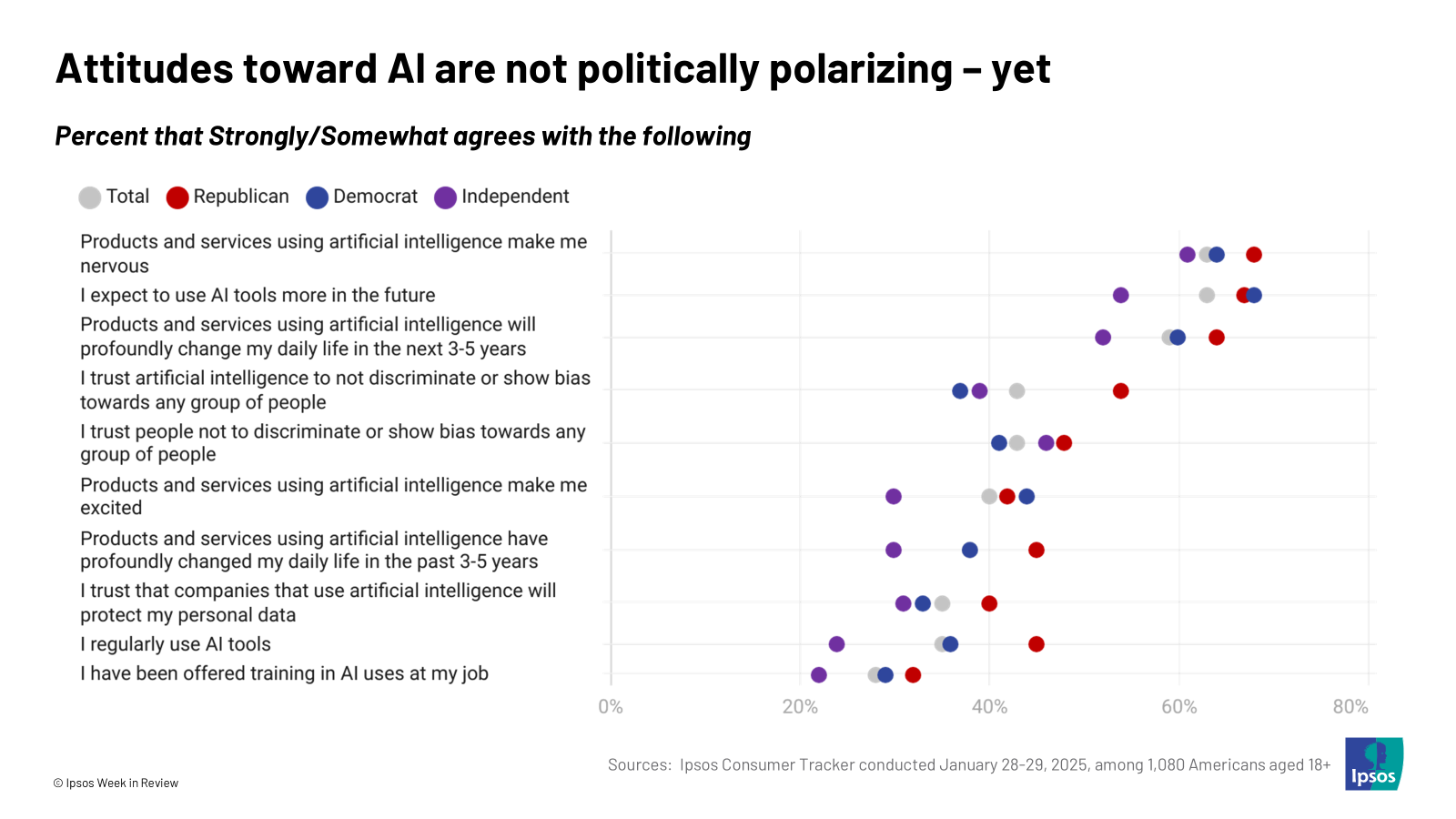
- AI populism? Americans expect elites and the wealthy to benefit from AI more so than people like themselves. Americans’ distrust of the country’s elite is already high. If AI has a significant impact on Americans’ jobs and livelihoods, don’t rule out AI becoming a key force in American domestic politics.
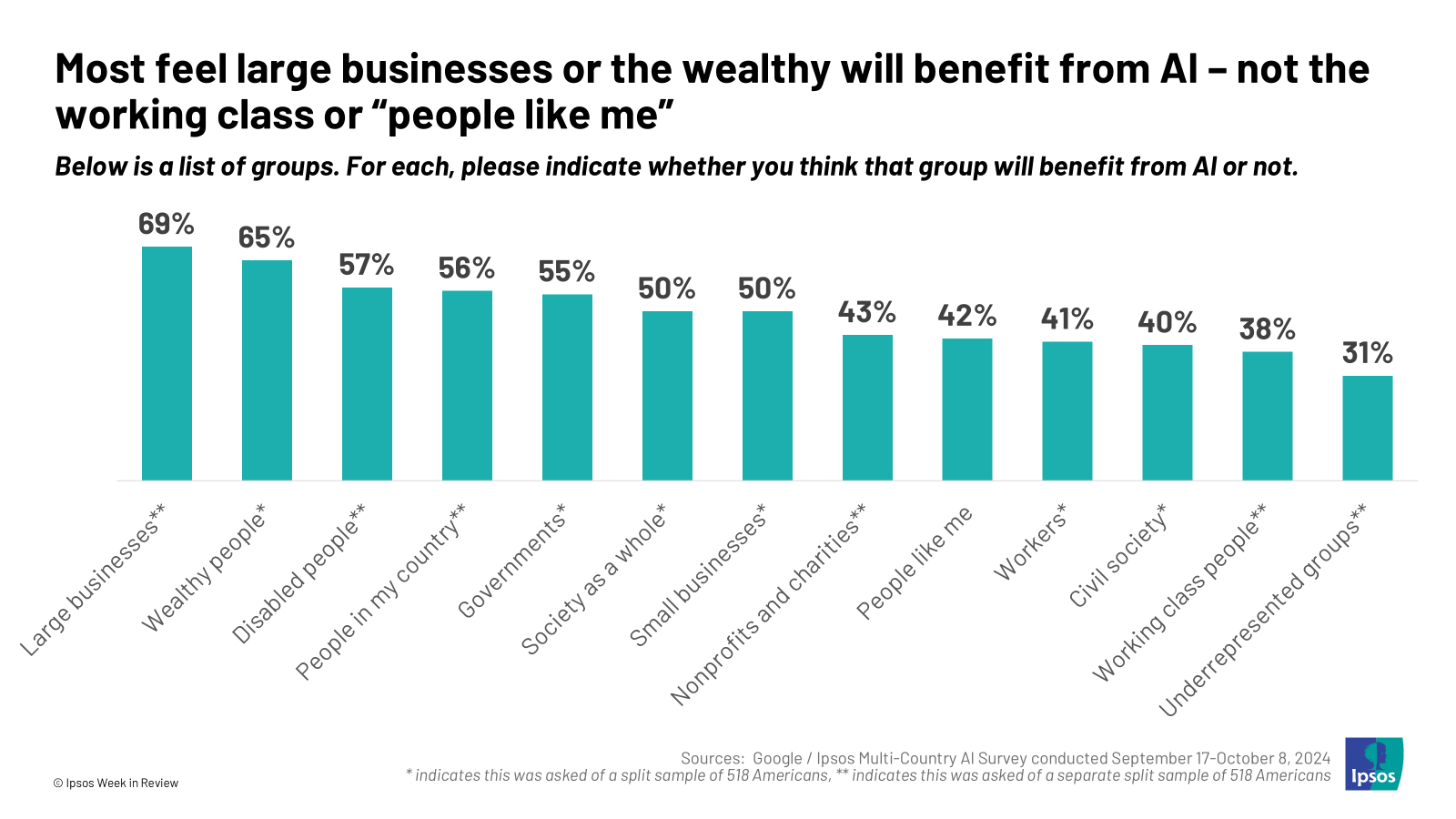
How Americans respond to developments in AI’s capabilities will likely be a function of how these developments affect their daily lives, and whether they feel these changes benefit people like them or an already rich and powerful elite. But it’s anybody’s guess as to how AI technology, and thus public opinion around AI, will evolve over the next few years.
One thing is certain though: AI isn’t going away. It’s a tool Americans, especially the younger generations, currently use and expect to use more in the future. With hundreds of billions still pouring into the AI industry, the AI arms race isn’t cooling down – its heating up.

